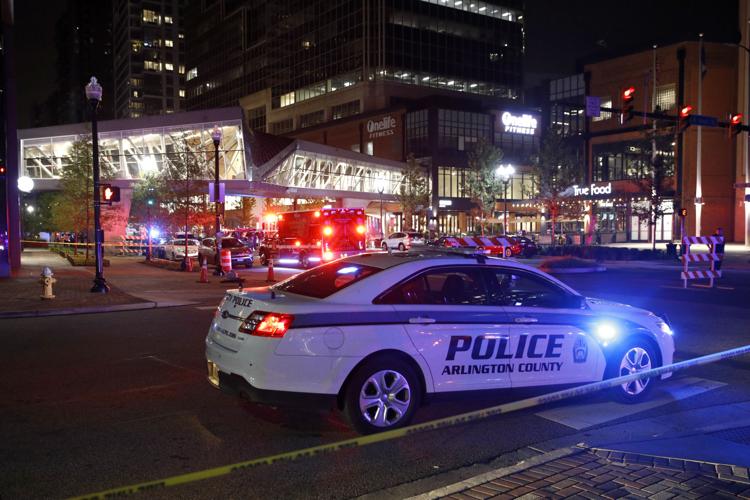De-escalation tactics, police bias discussed in House committee hearing ahead of special session

Law enforcement officials respond to reports of a shooting at Ballston Quarter mall in Arlington, Va., on Saturday, Sept. 14, 2019.
(The Center Square) – De-escalation tactics, police bias and mandatory minimum sentences were part of the discussion at a Virginia House of Delegates virtual hearing on proposed criminal justice reforms to prioritize in August’s special session.
Lawmakers heard testimony from a variety of perspectives on how the state should approach reform. The joint meeting was conducted by two House committees: the Courts of Justice and public Safety committees.
Shannon Dion, director of the Department of Criminal Justice Services, told lawmakers the department is currently working to revise the police straining standards to reflect some of the concerns voiced by protesters across the commonwealth and the country. The draft language will be placed on Virginia’s town hall website for the public to access.
The initial draft language revises the standards on de-escalation tactics, biased police reporting and protocols when responding to people in a crisis. Although current training standards require these topics be addressed, Dion said the revision will require them to go into greater detail.
Any proposal would need to be approved by the Committee on Training, whose meetings will be open to the public. A public comment period also will be provided. The committee could approve the language in full, revise it during the meeting, block all of it or send it back to the department with suggestions for revision.
Dion said the reforms process could take up until the end of 2021 to ensure it’s done right and the public’s input is taken into consideration. Del. Charniele Herring, D-Alexandria, said she does not want to rush the department, but she also doesn’t want them to drag their feet on these issues, saying it’s long overdue.
Some of the proposed reforms are outside of the authority of police departments and other government agencies, and change would need to come from the General Assembly. This includes an expansion to the decertification laws and a change to mandatory minimums.
Since 2015, 34 police officers have been decertified. Law requires that an officer can only be decertified under a small set of offenses, which include being convicted of a felony, a misdemeanor sex offense or domestic assault, failing to comply with training requirements, and refusing to submit to or providing a positive drug screen.
An officer cannot be decertified based on ethical concerns, policy violations, non-criminal excessive force or general misconduct.
Mandatory minimum sentences, which would need to be changed by the General Assembly, provide a minimum sentence that judges are compelled to issue for certain crimes. Ashley Nellis, a research analyst for The Sentencing Project, said in her testimony that these laws provide a “cookie cutter approach” that does not consider the individual situation. She said many of the mandatory minimums are for non-violent crimes.
Camille Cooper, vice president of public policy at the Rape, Abuse and Incest National Network, said the state should not repeal mandatory minimums for sexual offenses. Particularly, she said people guilty of sexual violence against children should be required to stay behind bars.
Some of the other potential reforms that will be considered during the special session include ending qualified immunity for police officers, ending or heavily restricting no-knock raids, firing officers who use force during interrogations and making it illegal for police to have sex with an individual in custody.
The committees will meet again on Aug. 6. The special session will convene Aug. 18.

